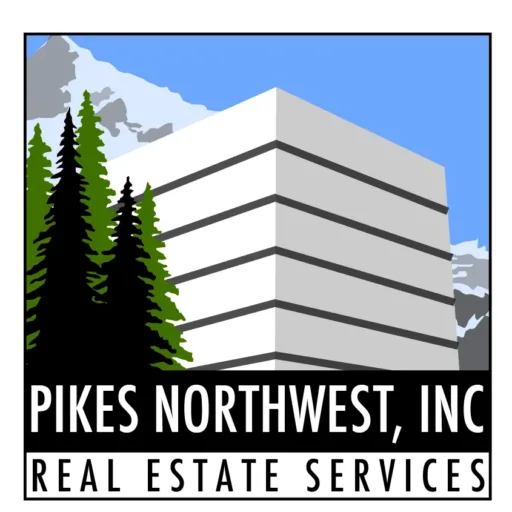The name of the game in commercial real estate is attracting and keeping tenants. If a building has few (a lot of vacancies) or no tenants, there often is little to no value to an investor. And, rare as a hen’s tooth (my wife’s favorite store in Sisters, OR) is it you’ll find a savvy investor who’ll pay a high price for a non-existent cap rate on a partially full or empty building unless they have a major tenant in their back pocket. Why? Most lack imagination or can see value that’s not readily apparent. Others lack ingenuity and creativity and still others are risk averse. None of those are bad, by the way – they are just common characteristics of people you and I both know.
Here is a perfect, real-life example of a building that has experienced 100% occupancy since it was built and is now about to close with a new owner (getting and keeping tenants). It’s one of the larger, multi-tenant buildings we manage. It has excellent tenants, well-matched for the space. The tenants are government or quasi-government-based. Tenant financials, as an aside, really don’t get any better. There’s also a solid, sensible “tenant mix.” A concept to explore for another time. Just know for now it’s one, if not thought out, that can de-value a building very, very quickly.
Here’s an important reason why this property attracted a lot of interest from a qualified investor so quickly: The Seller was perfectly happy leaving money on the table and providing a good value to a new buyer so the building was marketed at an attractive 7% cap rate (Net Operating Income divided by the Sales Price = Cap Rate. Net Operating Income, or NOI, on a building like this is typically around 70% of the gross income). Consequently, in short order, and because it was marketed well by the Seller’s Broker, it attracted interest from a qualified investor and quickly went into escrow. It doesn’t hurt either that it’s an attractive, well-managed building with pride of ownership evident. What’s more, the tenants love their spaces for all sorts of reasons, to include, the building management. Here’s why this is crucial: As an owner, when you have a property with poor management, your tenants vote with their wallet and go elsewhere. I know…I’ve done it as a tenant, and I’ve experienced it as an owner. The latter a tough lesson learned the hard way.
Why Tenants Leave
We’ll stick with this building and go through a few common reasons why tenants leave. Barring any issues related to the tenant’s “fit” for the space (it makes sense for the tenants) and with their financials, it comes down to how do tenants “feel” about where they are. In other words, emotions. I know, I know, emotion has no place in financial decisions. But reality is, we both know it often plays a big role. And, if you have tenants who are unhappy with their space because of continual unaddressed HVAC, parking, safety or janitorial issues, or with a leaky roof, they are already looking to move before their lease is up. The building I refer to above has none of these issues. There are zero complaints. Why?
As a property management company, we’re in regular and consistent communication with our tenants. They know what to do and how to reach us easily, if there is ever an issue with their space. In addition, we’re visible. In this case, our Day Porter is at the property 2 to 3 times each week taking care of routine small maintenance issues, trash pick-up, parking lot cleanup, and getting ahead of any problems, to include regularly scheduled roof inspections. HVAC is serviced quarterly and it’s rare there is a complaint. Janitorial is monitored by our Day Porter and by our property manager. We typically know before tenants know, in general, if there is an issue. Parking is in abundance because the Seller and his team did an excellent job with development – they built a building and parking lot with this in mind.
Why Tenants Stay
As an owner (and to us) tenants are your (our) customers. Customers want to know they can be heard, have a say, and see results from their feedback or input. They want to be warm when it’s cold outside and cool when it’s hot. They want easy parking in a safe place. They want a clean office and restrooms. If there’s an issue with a light in the parking lot in the middle of winter, they want to know we will take care of it, and, they don’t want to have to be the one to complain. That’s a property manager’s job to note the deficiency before the tenant or owner does.
And, when there are issues or challenges with a building whether tenants are upset or not, and there will be – we’re dealing with buildings built by humans after all – the best thing that can happen is a quick, efficient and concerned response to address the problem, with professionals who know the building, know the tenants and what to do to fix the problem.
When you have a professional property management team that takes care of your tenants, your tenants will take care of you. And, ideally, along the way, you’ll see an ever-increasing value and return on your investment with as few hassles and unless, God-forbid, a building or life is or has been in danger, few or no late-night calls.
Commercial real estate investing is serious business. It requires a serious support team. The most successful property owners understand the value of having a great “customer service team” (property managers). When done right, there is an opportunity for money to be made by the owner and benefits to be had by tenants enjoying and ideally profiting from their space.
As property managers, we want you to have a successful ownership experience and have your investment pay off. In the meantime, the better your asset is cared for, the odds are that much greater the asset will take care of you by maintaining loyal tenants who’ll continue to pay, stay and perhaps, even refer another tenant to you. When that happens, you know you’ve got a great team.
Call to schedule a no-obligation 27-Point Executive Property Analysis and we’ll help you learn if you’re getting all you can out of your property investment.

 My name is Alyssa Flores. I was raised here in Salem, Oregon. I’ve been working in property management for the past 6 years, and am excited to be part of the Pikes Northwest team. In my spare time I enjoy being with my family and friends.
My name is Alyssa Flores. I was raised here in Salem, Oregon. I’ve been working in property management for the past 6 years, and am excited to be part of the Pikes Northwest team. In my spare time I enjoy being with my family and friends. My experience in property management spans 15 plus years including selling homes in Southern CA. I relocated back to the NW after 20 plus years and I’m really enjoying the beauty of the seasons! I’m excited to add more Commercial Property Management experience to my skill set!
My experience in property management spans 15 plus years including selling homes in Southern CA. I relocated back to the NW after 20 plus years and I’m really enjoying the beauty of the seasons! I’m excited to add more Commercial Property Management experience to my skill set!